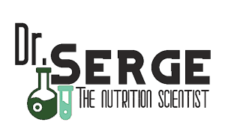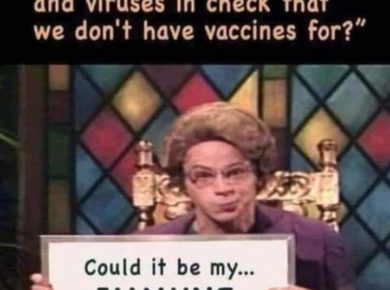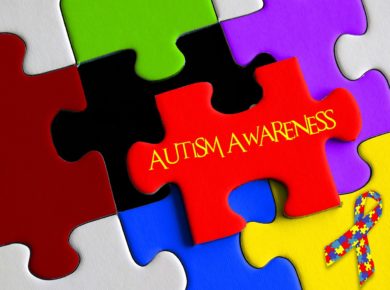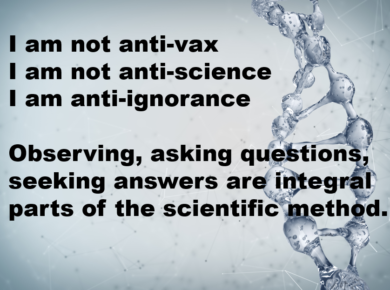My last blog post was about antibiotics and how they can affect gut health and function. This was the second post of a series of two. Gut health is critical to health in general and it is very important to talk about it. I mentioned that we need to avoid antibiotics at all costs. But sometimes we do not have the option. Sometimes an antibiotic is needed to save lives.
And then I told my story, or I should say my son’s story. How his journey woke me up to the truth.
Sadly enough, I got very nasty, mean, totally inappropriate messages after I related my story.
I will spare you the cuss words and what those messages said, but basically, they were accusing me of being a thief, a liar, a fraud, etc. because kids do not get this type of cancer, that is not possible, you are making everything up, etc. They were accusing me to make up a story, so people feel sorry for me, that I used pity and sympathy to get people’s attention, etc.
You can see the picture here; it was not pretty!
What is wrong with people these days?
I do not wish this to anyone, not even to them, what I went through. I would never wish that a parent witnesses their child slowing dying in front of them, feeling hopeless because you can’t help him.
I do not wish to any parent waking up one morning with your son having grand mal seizures, looking at his eyes and see that he is suffering, that he is in pain, that he wants to be somewhere else, not here…
I do not wish to anyone to be in the hospital on Christmas Eve and learning from the oncologist that the cancer spread to the brain, that he has 3 tumors there and there is nothing they can do about them…
I do not wish to anyone to see your son taking his last breath…
This would be completely insane and inhuman!
I did not tell my story for y’all feel sorry me. I struggled a lot after his death. It took me a while to get of this grief and depression. I told my story to show that there is hope!
God turned my life around after this He used this situation to show His glory, to show what His purpose for me in life is. Through this difficult time of my life, He showed me a way out, that there is hope!
I pray in the name of Jesus that those people find peace and compassion in their hearts.
Anyway, let’s talk about our children.
Over a million children under the age of six are currently on psychiatric drugs in America
Psychiatric drug use is on the rise in the U.S., with one out of every six Americans now taking some type of medication in this category.
As you can see from this link, there are tons of them!
This is highly concerning, given the scary side effects and poor effectiveness of many of these drugs. In fact, I have yet to meet someone who got “cured” by taking these medications.
But there is one particularly disturbing aspect of this trend that seems to get glossed over, and that is the extraordinary number of children who are taking such drugs.
Mental health watchdog group Citizens Commission on Human Rights is drawing attention to the concerning fact that more than a million kids younger than six in our nation are currently taking psychiatric drugs.
While around half of these children are four to five years old, an incredible 274,804 of them are younger than a year old. That’s right: babies are being given psychiatric drugs!
The number rises for toddlers aged two to three, with 370,778 kids in this category taking psychiatric drugs overall.
Data from IMS Health shows that the situation only gets worse as kids get older, with 4,130,340 kids aged 6 to 12 taking some type of psychiatric drug.
You might be forgiven for assuming that most of these statistics are made up by kids taking ADHD drugs given how common that approach seems to be nowadays, but it really only accounts for a small portion of it, with 1,422 of those younger than a year old and just over 181,000 of those aged four to five taking ADHD drugs.
Antidepressants and antipsychotics put forth some surprising figures, but the biggest category of psychotic drugs given to children appears to be anti-anxiety drugs. Just over 227,132 babies under one and nearly 248,000 of those aged four to five take these medications.
These numbers are even more shocking when you consider the fact that experts believe these estimates are far too low, and the real numbers are actually much higher, due in part to the tendency for some doctors to hand out psychiatric medications for “off-label” uses. This risky practice entails giving out a drug to treat something that it is not indicated for, and the long-term effects of such an approach are completely unknown.
When adults choose to take psychiatric medication, it may be ill-advised in many cases, but it is still their choice to make. Children, on the other hand, lack the cognition to fully understand the lifelong impact of such a choice, and this essentially amounts to forced medication.
We already know that many doctors have a financial incentive to get young people to start taking these drugs, but why are their parents so willing to get on board? Many of them are also taking psychiatric medications, of course. In fact, it has practically become a way of life in our nation, and many people think of these meds as harmless.
This is a very unfortunate situation!
I know, because I have been there. In my teens, I had major anxiety and my parents took me to a doctor. And of course, he prescribed me an antidepressant to help me. Now I do not take anything because I fixed my gut! I will come back to this in a minute 😊
The side effects of these drugs are nothing to scoff at; however, with antianxiety, antidepressant, and antipsychotic drugs linked to heart attacks, psychosis, suicidal ideation, diabetes, stroke, mania, and sudden death.
Psychiatric medications affect a child’s brain chemistry and could impact their development in irreversible ways, so it’s important for doctors and parents alike to reserve them as an absolute last resort.
Some degree of anxiety is normal in children as they start to understand the way the world works. Life is full of ups and downs, and children who learn coping strategies when they’re young will have a valuable skill that can serve them well throughout their lifetime. There are lots of good coping mechanisms that can help children with depression, anxiety, and those who have been labeled with ADHD, including yoga, art therapy, breathing exercises, and physical exercise, to name just a few.
It is up to us, parents, to teach them and help them with how they are feeling.
Let’s talk about how to heal the gut. There are several factors causing ADHD, anxiety, depression, and other mental disorders.
You may have heard that the gut is the second brain. The reason is obvious:
The second brain contains some 100 million neurons, more than in either the spinal cord or the peripheral nervous system. This multitude of neurons in the enteric nervous system enables us to “feel” the inner world of our gut and its contents.
In other words, the gut directly regulates the function of the brain, how we feel. It is the root cause of brain issues like depression and anxiety.
Nature, one of the most prestigious scientific journals in the world, published a groundbreaking study on the interaction between pharmaceutical drugs and the human microbiome.
In a lab, forty bacterial strains commonly found in the gut were tested against 1,079 pharmaceutical drugs to see which drugs inhibited the growth of gut bacteria.
Drugs that stopped the growth of at least one bacterial strain were considered a ‘hit’ and likely to have antibiotic-like side effects in humans. The drugs tested were divided up into three groups based on their cellular targets:
1. Antibiotic Drugs (Targets bacteria):
As expected, the majority of the antibiotics tested inhibited growth of at least one strain of gut bacteria.
2. Anti-infective Drugs (Targets parasites, protozoa, fungi, and viruses):
53% of these drugs inhibited growth of at least one strain of bacteria. This is somewhat surprising, as these drugs are not designed to attack bacteria, yet more than half did.
3. Human Targeted Drugs (Although this name is confusing, it simply means any drug that is designed to affect a human as opposed to a microbe):
24% of these drugs had antibiotic-like side effects. This included drugs from ALL major classes. Examples include antipsychotics, calcium channel blockers, antihistamines, proton pump inhibitors, thyroid medications, blood thinners, NSAIDs and anti-diabetics like metformin.
This data is groundbreaking. It suggests that many pharmaceutical drugs, not just antibiotics, are able to modulate the microbiome.
For example, antipsychotic drugs work, theoretically, by acting on dopamine and serotonin receptors in the human brain. These receptors are not found in bacteria. Therefore, they should have no effect on the bacteria in the gut. However, that is not what this study found.
As mentioned above, 24% of drugs designed for human cells, also negatively affected gut bacteria. This suggests that every time you take an antipsychotic, an NSAID, metformin, or many others, you are harming your microbiome.
The authors conclude that their study likely underestimates the impact of these drugs on the microbiome due to “the limited selection of bacterial strains screened.” As you can see from the study figure below, as they sampled more strains of bacteria, more human-targeted drugs were found to have antibiotic-like activity. This study only tested 40 strains, but there are actually hundreds in the human microbiome. Thus, the percentage of pharmaceutical drugs that impact the gut is likely much higher than 24%.
The study also found that healthy bacteria were more likely to be harmed than the pathogenic strains.
Although this study was done in a lab, their data correlates well with other human studies. A large Flemish cohort study showed that patients taking hormones, antidepressants, immunosuppressants or anti-inflammatory drugs had significant changes in their microbiome.
Another study showed that patients on long-term metformin showed alterations in their gut bacteria.
Similar studies demonstrate the same results for atypical antipsychotics and proton pump inhibitors.
These studies and several others clearly demonstrate that medications (and environmental toxins in general) disrupt the delicate balance of our gut flora, leading to a variety of health issues.
This is the critical factor that we need to understand and address. Our children are getting sicker. On average, the typical American is exposed to 100 000 toxins on a daily basis. Babies are born with 250 types of toxins. This is not a good way to start their new lives!
Something has to be done! Now!
We need to handle the sources of toxins that our children, and all of us, are exposed to. The most common ones I have observed in clinic are chlorine, fluoride, pesticides, food dyes, cosmetics/personal care products, formaldehyde, aluminum, mercury, arsenic, and cadmium. Of course, there is a lot more that can be harmful, but these are the most common ones.
Chlorine and fluoride come mostly from water. A good quality water is the foundation of health. There are several companies that can assist you with your water. Usually, they come out to your home and test the water to determine the best course of action to give you the best water. Personally, I have used Culligan for years. They have great systems that can remove pretty much all the toxins present in the water.
Eating organic is important as well. This minimize exposure to Roundup or pesticides in general. In addition, you avoid GMOs products that are very toxic!
Formaldehyde, aluminum, mercury could be coming from vaccines. Like I wrote before, Yale found a concerning link between vaccination and mental disorders.
The answer lies of this connection lies within the various adjuvants used for the manufacturing of vaccines.
For example, as I have written many times in the past, aluminum causes brain inflammation which leads to neurological issues. Of course, vaccines are not the only sources of aluminum of toxins, but it is the main ones for babies and children.
To recap:
- Sugar. Sugar, particularly in the form of fructose and sucrose, spikes insulin and triggers the release of inflammatory cytokines. It forms advanced glycation end products when it binds to proteins and oxidizes lipids which form cell and mitochondrial membranes.
- Chemicals. Pesticides, environmental pollution from industrial waste, hormonally modulating plastics, fire retardants, and cosmetic additives all stimulate our immune systems to varying extents and disrupt the optimal production of energy on a cellular level, particularly in vulnerable tissues like the thyroid.
- Pathogens. The aforementioned culprits, and notably herbicides, gluten grains, and genetically modified foods, promote intestinal permeability, changes in our intestinal flora that facilitate growth of pathogenic bacteria, yeast, and fungus which keep our immune systems in a state of alarm
- Stress. This catch-all term, broadly defined, represents the ultimate link between hormones and inflammation, because stress, whether it’s psychological or physiologic, triggers the release of cortisol. Cortisol helps to mobilize blood sugar so that you can run effectively and efficiently from that tiger chasing you. It also acts as a systemic immune suppressant, lowering levels of secretory IgA, an important body guard of the gut mucosa.
Now that we know what factors cause mental disorders, let’s look at what we can do to help win this battle! Below are some my recommendations that have been shown to help to curb depression:
- Exercise – Burst exercise is my primary recommendation. It is the most bang for your buck in terms of cardiovascular benefit and specifically enhancing mitochondrial health because it puts a special kind of stress on the body when you move to your max for 30 seconds that then recover for 90. I recommend 8 intervals 1-3x/week.
- Meditation/Prayers – The effects of stimulating the relaxation nervous system, even just listening to a 20-minute guided meditation, can be far-reaching. Enhanced genomic expression of anti-inflammatory genes and suppression of inflammatory ones was demonstrated
- Diet – I recommend a diet that controls for glycemic fluctuations through elimination of refined carbs and grains, and through high levels of natural fats to push the body to relearn how to use fats for fuel. This is the brain’s preferred source. Good quality fats are eggs, coconut oil, avocado, nuts, olive oil, bacon and good quality meats and dairy products (organic, grass-fed, pasture raised). Fermented foods are also important to incorporate into your diet. These are the best sources of probiotics.
- Strategic supplementation – A proper detox is required to help your body to eliminate the toxins we are exposed. In addition, some herbs like Pau D’arco, Wormwood, cat’s claw, Ganoderma, Neem, berberine, grape seed extract, etc. could be used to get rid of parasites, candida or any other pathogens. Natural anti-inflammatories like polyunsaturated fats (evening primrose oil and fish oil), curcumin (the active component of turmeric), probiotics, CBD to name a few, can help promote a synergy of beneficial effects from the above interventions.
As a final point, I want to relate 2 cases of children with mental disorders. One was this 9-year old girl diagnosed with severe ADHD. Her parents were really concerned despite the fact that she was taking 2 medications for it. She was really smart, but she failed in classes. After the nutritional assessment, we determined that she was sensitive to wheat. My recommendation to the parents was simply cut the wheat out of her diet. I kid you not, a few later, she did not have ADHD anymore. Her parents were blown away! Indeed, some kids or adults are highly sensitive to gluten and it should be avoided.
Another case was a teenager, he was very anxious, depressed and dealing with major ADHD. Again, he was smart, but his grades were in the 30% because he could not focus. In this case, he gave him Ganoderma spore powder. The spore of the Reishi mushroom is a GABA regulator, meaning it calms the brain. Within a few weeks, his “ADHD”, anxiety, depression went away!
You see, any symptoms can be addressed with the right nutrition, herbs, or diet.
Hope this helps 😊
God bless y’all 😊
Dr. Serge






